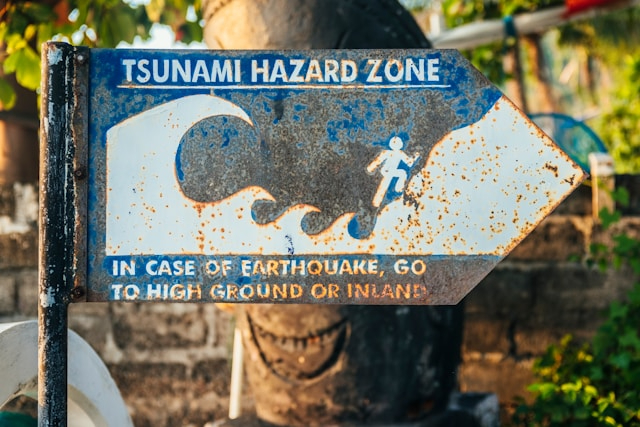A powerful 8.8-magnitude earthquake struck off Russia’s east coast on July 30, 2025, triggering tsunami warnings and forcing over 2 million people to evacuate Japan’s eastern coastline. The event has caused major travel disruptions, with flights to Japan canceled and rail and ferry services suspended as authorities work to protect lives.
Evacuations and Immediate Impact

Japan’s Fire and Disaster Management Agency (FDMA) ordered evacuations for more than 2 million residents across over 220 coastal municipalities, from Hokkaido to Okinawa. This is the largest evacuation since the 2011 Tōhoku disaster, showing the seriousness of the threat. While no major injuries or damage have been reported so far, officials warn that tsunami waves could continue for over a day.
Travel Disruptions
Sendai International Airport in Miyagi Prefecture suspended all runway operations after tsunami alerts. At least two domestic flights were diverted, and travelers to or from northeastern Japan should expect ongoing delays and possible cancellations. Other airports in Hokkaido, such as Nemuro-Nakashibetsu and Kushiro, are also experiencing delays due to poor visibility and weather. International carriers like ANA and JAL are updating flight status in real time, and passengers are urged to check directly with airlines or airport websites for the latest information.
Flights from the US West Coast to Hawaii have been diverted or returned to the mainland because of tsunami warnings. Alaska Airlines and Hawaiian Airlines have suspended services to and from Hawaii as a safety measure. While there is no blanket ban on international flights to Japan, significant disruption is expected for flights to and from affected regions.
Rail and Ferry Service Suspensions
JR East has fully suspended several coastal train lines, including Jōban, Tōkaidō, and Yokosuka. Inland lines like Yamanote and Chūō remain open but may change as the situation develops. Ferry services between Hokkaido and Aomori, and between Tokyo and nearby islands, are also suspended.
Advice for Travelers and Residents
- Travelers should expect major delays, cancellations, and possible re-routing of flights and trains. Avoid coastal areas until all tsunami warnings are lifted and follow evacuation orders from local authorities.
- Residents under evacuation orders should go to designated shelters and listen to official instructions. Emergency services are on standby for rescue operations.
Expert Analysis and Community Impact
Experts say Japan’s quick evacuation orders and transportation shutdowns show lessons learned from the 2011 disaster. The scale of the evacuation and travel disruption is the largest since then, but the response has been calm and effective. Airlines and rail operators face big challenges in the coming days, and tourism and business travel to Japan’s northeast will be affected until things stabilize.
8.8-magnitude earthquake struck off Russia’s east coast
Tsunami warnings triggered, evacuations ordered
Sendai International Airport suspended runway operations
JR East suspended several coastal train lines
Transportation disruptions expected to continue
Looking Ahead
Tsunami advisories remain in effect for much of Japan’s Pacific coast. Transportation disruptions are likely to continue through at least July 31, 2025. For real-time updates, visit the Japan Meteorological Agency’s official website.
As reported by VisaVerge.com, travelers and residents should prioritize safety, follow evacuation orders, and check official sources for updates. Expect ongoing travel disruptions and plan accordingly.
Learn Today
Tsunami → A large sea wave caused by underwater earthquakes or eruptions, posing flood risks to coastal areas.
Evacuation → The organized removal of people from a dangerous area to protect their safety.
Prefecture → An administrative jurisdiction in Japan, similar to a state or province.
JR East → Major Japanese railway company operating train lines in eastern Japan, including affected coastal areas.
Flight Diversion → The redirection of a scheduled flight to an alternate airport due to safety or operational issues.
This Article in a Nutshell
A massive 8.8 earthquake near Russia’s coast forced Japan to evacuate over 2 million residents. Transport halted nationwide, disrupting flights, trains, and ferries. Authorities emphasize safety as tsunami risks persist with warnings continuing beyond July 30, 2025, impacting millions and leading to widespread travel chaos across Japan’s eastern coast.
— By VisaVerge.com












